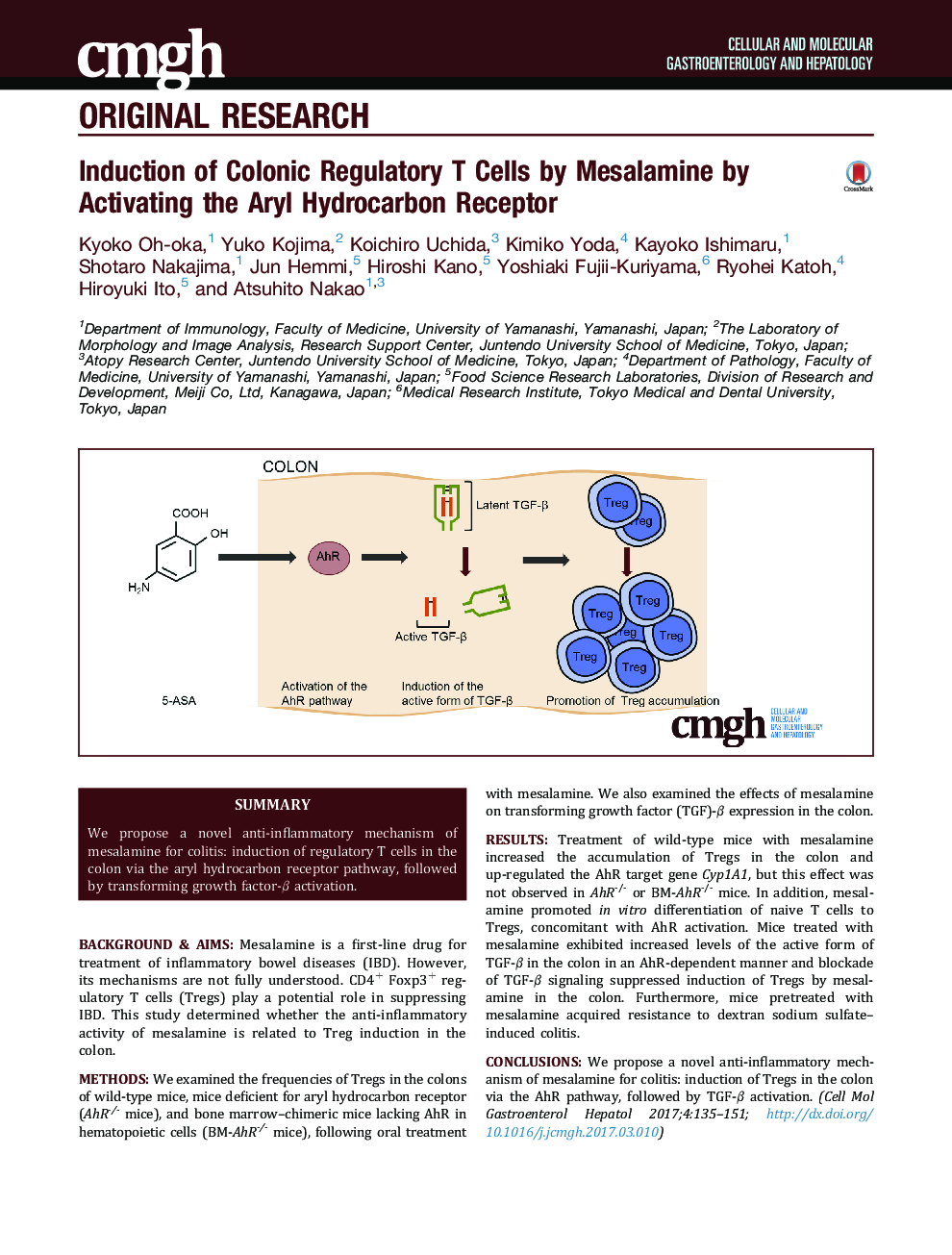| Article ID | Journal | Published Year | Pages | File Type |
|---|---|---|---|---|
| 5517186 | CMGH Cellular and Molecular Gastroenterology and Hepatology | 2017 | 17 Pages |
Background & AimsMesalamine is a first-line drug for treatment of inflammatory bowel diseases (IBD). However, its mechanisms are not fully understood. CD4+ Foxp3+ regulatory T cells (Tregs) play a potential role in suppressing IBD. This study determined whether the anti-inflammatory activity of mesalamine is related to Treg induction in the colon.MethodsWe examined the frequencies of Tregs in the colons of wild-type mice, mice deficient for aryl hydrocarbon receptor (AhR-/- mice), and bone marrow-chimeric mice lacking AhR in hematopoietic cells (BM-AhR-/- mice), following oral treatment with mesalamine. We also examined the effects of mesalamine on transforming growth factor (TGF)-β expression in the colon.ResultsTreatment of wild-type mice with mesalamine increased the accumulation of Tregs in the colon and up-regulated the AhR target gene Cyp1A1, but this effect was not observed in AhR-/- or BM-AhR-/- mice. In addition, mesalamine promoted in vitro differentiation of naive T cells to Tregs, concomitant with AhR activation. Mice treated with mesalamine exhibited increased levels of the active form of TGF-β in the colon in an AhR-dependent manner and blockade of TGF-β signaling suppressed induction of Tregs by mesalamine in the colon. Furthermore, mice pretreated with mesalamine acquired resistance to dextran sodium sulfate-induced colitis.ConclusionsWe propose a novel anti-inflammatory mechanism of mesalamine for colitis: induction of Tregs in the colon via the AhR pathway, followed by TGF-β activation.
Graphical abstractDownload high-res image (223KB)Download full-size image
